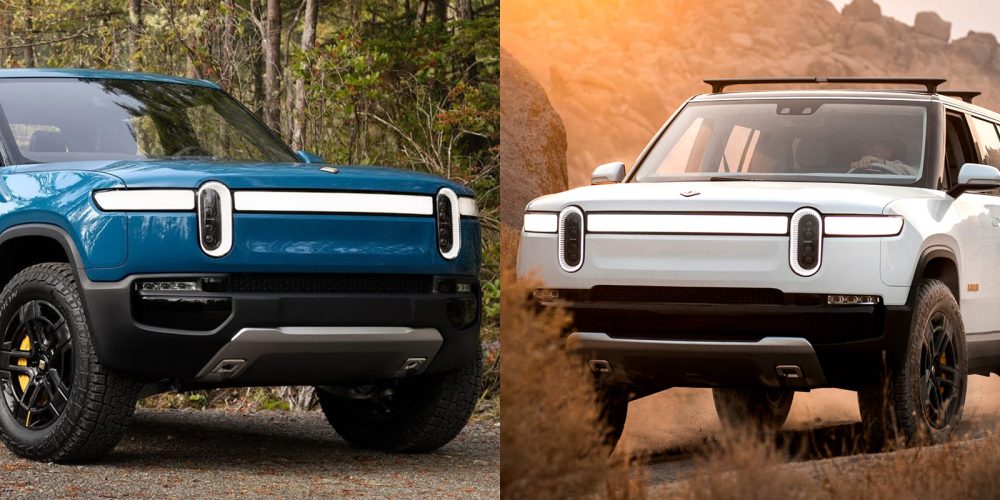
In a lawsuit filed in Cook County Court, Illinois, Rivian and Lucid Motors are being sued for their direct-to-consumer business model. The suit also lists Illinois secretary of state Jesse White as a defendant. It claims his office “has abandoned its enforcement role.”
The 70-page lawsuit was filed by the Illinois Automobile Dealers Association, Chicago Automobile Trade Association, and a laundry list of individual dealers. It alleges Rivian’s unlicensed sales operations are in violation of Illinois state law requiring franchised dealers to sell new vehicles. Furthermore, the suit says the secretary of state’s office is “turning a blind eye” to these violations. Per Pete Sander, president of the Illinois Automobile Dealers Association:
We have no choice but to file this lawsuit, both to protect consumers as well as the hundreds of franchised dealers across the state who contribute to the local economy.
California-based EV manufacturer Lucid Motors is also listed as a defendant in the suit. Lucid is moving closer to delivering its flagship Air sedan later this year. As a result, it has begun implementing showrooms called “Lucid Studios.” One is planned for Oakbrook, Illinois, for direct-to-consumer sales.
Rivian, on the other hand, is even further rooted in the Land of Lincoln. It previously converted a former Mitsubishi plant in Normal, Illinois, into its main production hub for its flagship EVs. The R1T and R1S are set to deliver this June and August, respectively. Rivian has already sold out of its Launch Edition trim for both models, too.
Furthermore, Rivian has been working on at least 10 showroom locations of its own in the US. One will be in Chicago’s Fulton Market area.

Rivian and Lucid Motors can learn from Tesla
For Illinois auto dealers and their franchises, this is not the first battle against direct-to-consumer EV sales. These trade associations took similar tactics against Tesla after it debuted its Model S sedan in 2012. Seven years later, the auto dealers, the secretary of state, and Tesla entered into an agreement allowing the automaker no more than 13 dealer licenses in the state.
The agreement reportedly included an assurance that Illinois secretary of state Jesse White would not issue any additional licenses to other manufactures authorizing direct to consumer sales. This is part of the reason why White is now listed a defendant in the lawsuit.
Last summer, the Illinois attorney general’s office declared that motor vehicle law does not expressly require new manufacturers to establish franchise dealerships to sell their vehicles. While this statement from the attorney general was issued as “an informal opinion,” it has left enough leeway for newcomers like Rivian and Lucid to implement their direct-to-consumer sales in the state.
So far, neither automaker is commenting on the lawsuit. The office for Jesse White plans to review the suit with the attorney general’s office and go from there.
Electrek’s Take
It feels like another lawsuit is just delaying the inevitable. Auto dealerships may end up extinct in the next decade or two. For now however, plenty of consumers still view the buying process as a visit to the dealer, a test drive, and then a purchase.
Especially as more consumers look to purchase their first EV, they’re probably going to want to kick the tires before making that zero emissions leap. Dealerships still provide this to us Midwestern folk, so there shouldn’t be cause for alarm… not yet, at least.
On the other hand, Tesla has proven the B2C model works well, alleviating the headaches or loss of profits from franchisees and dealerships. Rivian and Lucid Motors are just two new players to this space, but could offer a glimpse into the future of how we purchase our cars moving forward.
This lawsuit is less about Rivian and Lucid Motors selling to consumers in Illinois, and more about Jesse White going back on his word after the Tesla agreement was signed. From here, White’s office along with Attorney General Kwame Raoul will need to sort this out.
The way we see it, dealerships have some validity to their argument in this specific instance. At the same time, direct-to-consumer vehicle sales are only going to increase. If the model continues to prove successful, expect legacy automakers to follow suit and shutter up some of those brick and mortars, too. At the end of the day, it’s going to lead to whatever model generates the most profit after sale.
Subscribe to Electrek on YouTube for exclusive videos and subscribe to the podcast.
Author: Scooter Doll
Source: Electrek



